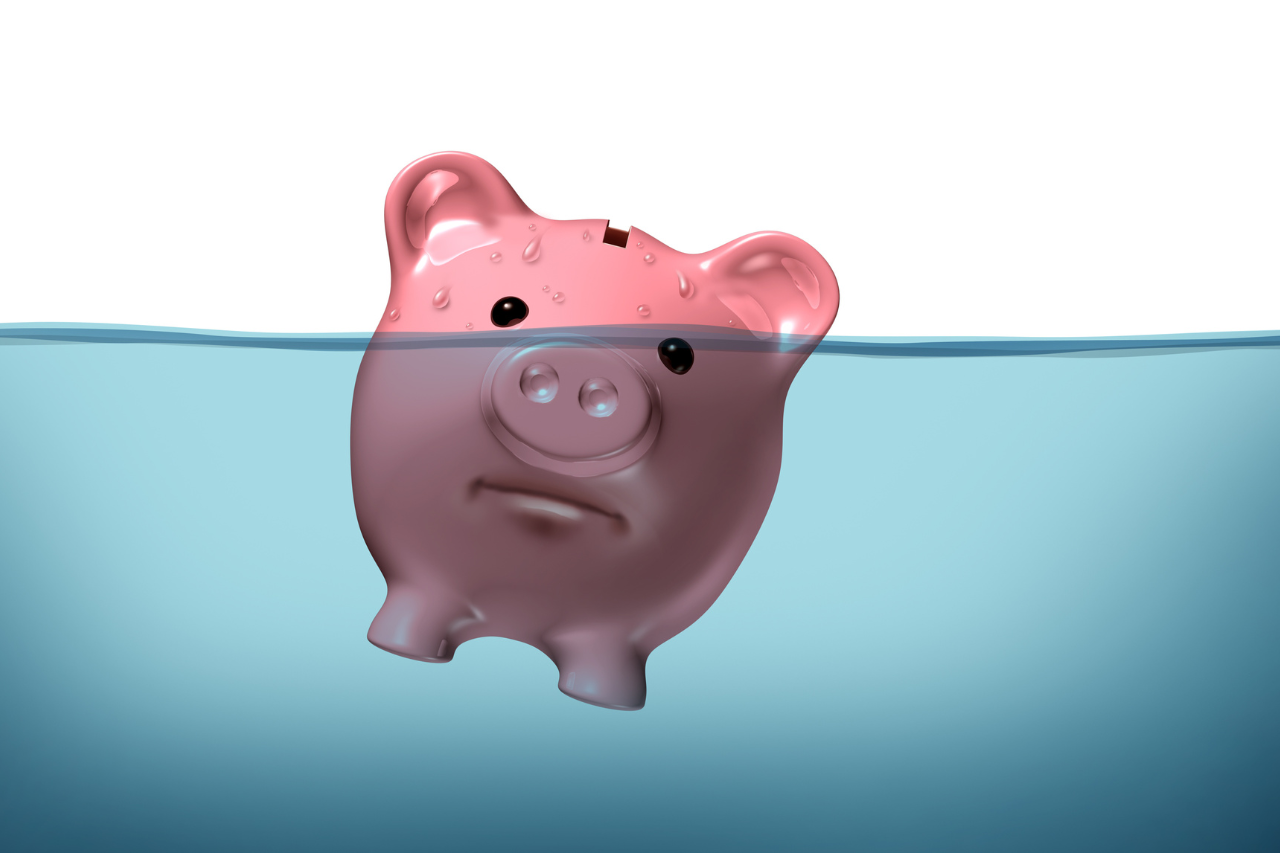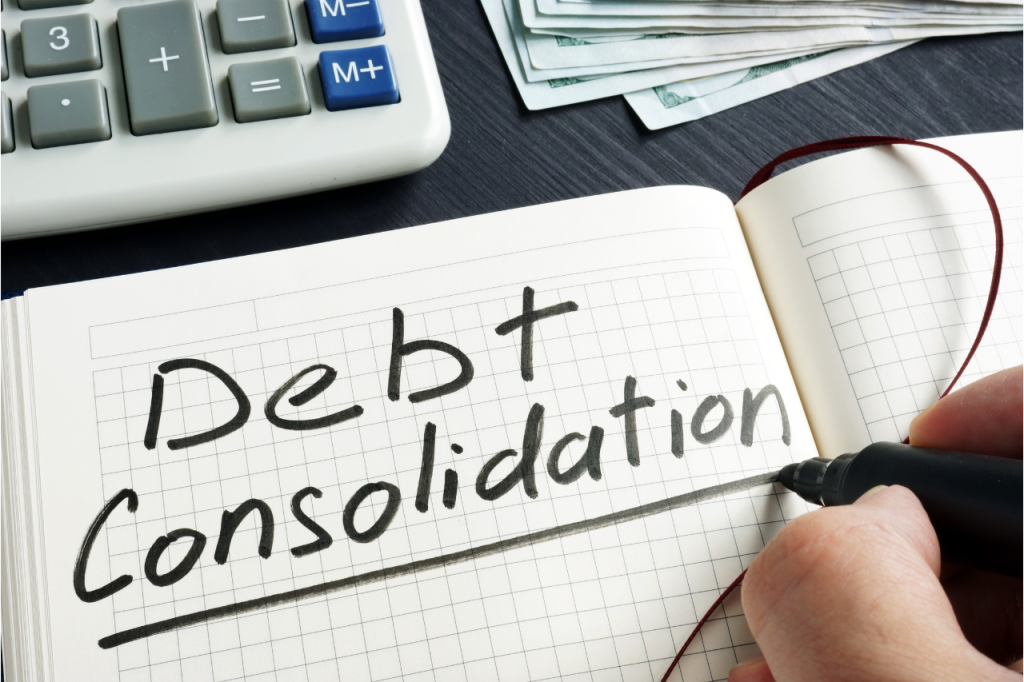
15 Steps And Strategies For Getting Debt Free

Share:
Getting out of debt and saving money can be a daunting task. It’s easy to get overwhelmed and feel like there is no way to pay off what you owe. But getting debt free is possible – if you have the right plan and the discipline to stick with it. This article will discuss the best way is to get out of debt, how to save money, and what strategies can help you become debt free.
Key Takeaways
1. Develop a budget and stick to it by tracking your spending and creating short-term goals
2. Make more money by taking on a side hustle or increasing hours at your current job
3. Maximize what you owe by consolidating debt, refinancing loans and negotiating with creditors
4. Prioritize what you pay and make sure to pay at least the minimum payments on all your debts
5. Automate your savings by setting up a direct deposit from your paycheck or recurring transfers
6. Make sure to pay yourself first and prioritize creating an emergency fund as part of your savings plan
7. Reach out for help if you need it – there are debt relief and financial counseling services available to help you get back on track
1. Pay Off Debt With a Cash-out Mortgage Refinance
For many people, one of the best ways to get out of debt and save money is by getting a cash-out mortgage to refinance. Also known as a debt consolidation loan, this type of loan allows you to combine all your current debts into one payment that is likely lower than what you are currently paying each month. This means that instead of making multiple payments each month, you are only making one. By reducing the amount of interest you are paying and consolidating what you owe into one payment, a cash-out refinance can help get you debt free faster.
2. Build a budget to pay off debt
Once you have a cash-out refinance in place, the next step is to create a budget that allows you to pay off what you owe as quickly as possible. Start by tracking your income and expenses so that you have an accurate picture of what money is coming in and what needs to be paid out each month. From there, prioritize paying down your debt as much as possible, while still allowing yourself some room to enjoy life. Make sure you’re also setting aside money for savings each month so that when it comes time to pay off what you owe, you’ll be able to do that without breaking the bank.
3. Live below your means
One of the best ways to get out of debt and stay that way is to live below your means. This means making sure you’re spending less than what you make each month. Start by looking for ways to reduce what you’re currently spending on things like groceries, entertainment, and other non-essentials. Try cutting back on eating out or shopping for clothes, and instead focus on what you need and what brings you the most joy in life.
4. Stop going out to eat
Going out to eat can be a great way to relax and have fun with friends or family, but it can also be one of the biggest drains on your budget. Instead of going out for dinner, try cooking at home more often. Not only will you save money by doing so, but you may find that you’re eating healthier as well. Use what you save to pay down your debt, and you’ll be one step closer to being debt free.
5. Look for ways to make extra money
If you’re serious about getting out of debt, then you may want to consider looking for ways to make some extra money. This could be picking up a side hustle, working overtime at your current job, or simply finding creative ways to save or make money. Even small amounts of extra cash can add up over time and help you pay off what you owe faster.
6. Consider Balance Transfers & Debt Consolidation
Another option to help pay off what you owe is to research balance transfer and debt consolidation options. There are a number of companies out there that specialize in these services, and they can help you transfer what you owe to a lower-interest card or consolidate your debt into one easier-to-manage payment. Just make sure you read the fine print carefully before signing up for anything and be aware of what fees may be associated with these services.

7. Try grocery shopping online
Grocery shopping online is becoming increasingly popular, and it can be an easy way to save money while getting what you need. When you shop online, you can compare prices and find coupons that may not be available at the store. Plus, you won’t have to worry about impulse buys, as you can stick to what’s on your list and won’t be tempted by what’s in the checkout aisle.
8. Learn to say no
If you’re trying to get out of debt and stay that way, it can be difficult to say no. However, learning how to do so is essential if you want to be successful. Start by setting a budget and sticking to it, and don’t feel guilty about what you can and cannot afford. It can be hard to turn down a night out or an expensive purchase, but if it means getting debt free in the long run, it’s worth it.
9. Debt Snowball
Consider using the debt snowball method to pay off what you owe. With this method, you make minimum payments on all of your debts while focusing extra money towards the smallest debt until it is paid in full. Once that is done, you can move onto the next one and continue working your way up until all of what you owe is eliminated. This can help motivate you to keep going while giving you the satisfaction of seeing what you owe decrease over time.
10. Use the Envelope System
The envelope system is a great way to keep track of what you’re spending and make sure you don’t go over what you have allocated for certain expenses each month. Allocate what you have budgeted for groceries, entertainment, or whatever else into separate envelopes, and only use what is in the envelope when making purchases. This will also help keep you from overspending and make sure that what you have left goes towards what you owe.
11. Get Consumer Credit Counseling
If you’re having trouble getting out of debt on your own, seeking the help of a consumer credit counseling service can be beneficial. These services are designed to help you understand what you owe and create a plan to pay it off. They can also provide advice on what the best options for consolidation and repayment may be. Remember, though, that there may be fees associated with this service, so make sure to do your research before signing up.

12. Consider a Debt Consolidation Loan
Debt consolidation loans can be a good option for those looking to get out of debt quickly. With this type of loan, you can combine what you owe into one easy-to-manage payment, which can make keeping track of what you owe much simpler. Just be sure to read all the terms and conditions carefully before signing up so that you understand what the interest rate, repayment terms, and other fees may be.
13. Automate Your Debt Payments
Setting up automatic payments for what you owe can help ensure that what you owe is paid on time every month. This can also make it easier to keep track of what is due when, and you won’t have to worry about missing a payment or being charged late fees. Just make sure that what is taken out of your account each month is what you can afford, and that what is being paid out is what will get you out of debt the fastest.
14. Pay More Than the Minimum Payment
Paying more than the minimum payment is another great way to get out of debt faster. Even if it’s just a few extra dollars each month, it can make a huge difference over time. This will help reduce what you owe and prevent the interest from piling up each month, allowing what you owe to be paid off sooner.
15. Talk to Your Creditors
If you’re having trouble making what you owe each month, it’s important to talk to your creditors. They may be willing to work with you on what you owe, or even lower the interest rate, so that what you owe is more manageable. Just be sure to explain your situation clearly and have a plan for how you intend on getting out of debt before asking for any changes.
Common Questions:
What does living debt-free mean?
Living debt-free means you don’t owe anyone else money, and what you earn is what you keep. This can help give you more control over your finances and the freedom to plan for the future without worrying about past debts. Being debt-free also allows you to save more money as there are no interest payments coming out of your account each month. Having no debt can also boost your credit score, making it easier to get approved for loans in the future if needed. Lastly, living debt-free gives you peace of mind knowing that what you have is what you own.
What percentage of people live debt free?
In 2020, about 35 percent of people in the United States were living debt free. This is up from 25 percent in 2017, and it reflects a trend toward more people becoming debt free each year. However, that still leaves 65 percent of Americans with some form of debt, so there is still plenty of work to be done when it comes to getting debt free. The best way to get out of debt is to have a plan, stick to it, and be willing to make sacrifices in order to achieve your goal. With dedication and hard work, you can become one of the 35 percent of Americans who are living debt free.
What happens when you become debt free?
When you become debt free, it allows you to have more control over your finances. You will no longer be paying interest on what you owe, so what is left after bills and expenses can now be saved or invested for the future. Additionally, since credit card companies report when an account has been paid off, becoming debt free can also improve your credit score. This can give you access to better loan rates or credit limits in the future, and make it easier to access funds if needed. Lastly, becoming debt free gives you peace of mind knowing what you have is what you own. There’s no longer any worry about owing debt or how much interest will be due each month.
What is the average age to be debt free?
The average age to be debt free varies depending on what type of debt you’re looking at. According to a 2020 study, the average age for mortgage debt freedom is 64 years old, while auto loans and student loans were both paid off by age 44. Credit card debt has the lowest average payoff time, with most people paying it off by age 39. However, what’s important to note is that these are just averages, and you can pay off your debt at any age depending on how much you’re able to save and what strategies you use to manage your money.
Is living debt-free smart?
Living debt-free is not only smart, but it can also be very rewarding. When you’re debt-free, what’s left over after bills and expenses can now be saved or invested for the future, giving you the freedom to plan ahead without worrying about what you owe. Additionally, being debt free can improve your credit score, making it easier to get approved for loans in the future if needed. Lastly, living debt-free gives you a great sense of financial security and peace of mind knowing what you have is what you own. So yes, living debt-free is definitely a smart move!
Which debt should you pay off first?
When trying to get out of debt, it’s important to have a plan and prioritize what debts you need to pay off first. The best way to do this is by focusing on the debt with the highest interest rate first, as this will be what is costing you the most money. Once that debt is paid off, move onto the next highest interest rate debt and keep going until all debts are paid off. If you have multiple debts with the same interest rates, it’s best to focus on paying off the smallest balance first in order to get a sense of accomplishment quickly.
How do I get out of debt with no money?
Getting out of debt with no money can be difficult, but it’s not impossible. The first step is to identify what debts you have and create a budget to see what funds are available for paying them off. Once you know what you owe, you may be able to negotiate lower payments or interest rates with your creditors. Additionally, look into consolidation programs or debt relief options that can help you pay off your debts in a more manageable way.
Once you’re Debt-free: How to stay out of Debt
1. Build your Emergency Fund:
Create an emergency fund with enough money to cover three to six months of living expenses in case you find yourself suddenly without income. This way, you won’t have to rely on credit cards or other loans if an unexpected expense comes up.
2. Set a Budget and stick to it:
Develop a budget that is realistic and includes what you need and what you want. Knowing what you have to work with will help you stay on track without spending more than what is available.
3. Pay off Credit Cards in full each month:
It’s important not to carry a balance on your credit cards, as interest charges can quickly add up and increase what you owe. Make sure to pay off what you’ve charged in full each month to avoid accumulating debt.
4. Track your Spending:
Tracking what you spend is a key part of staying out of debt. Knowing what and how much you’re spending will help you stick to your budget so that you don’t find yourself in a situation where you’re relying on credit cards to make ends meet.
5. Avoid Unnecessary Purchases:
Resist the urge to buy what you don’t need and stick to what you can afford. Knowing what is necessary and what is not will help ensure that your spending stays under control and doesn’t lead to accumulating more debt.
Bottom Line
Getting out of debt can be a difficult journey but it is possible with the right plan and commitment. Identify what debts you have, create a budget, and prioritize what to pay off first. Negotiate lower payments or interest rates with creditors if needed and consider consolidation or debt relief options for larger balances. Once your debts are paid off, create an emergency fund and track your spending to ensure that you don’t find yourself in a situation where you need to rely on credit cards or other forms of debt. By following these steps, you can get out of debt and stay out of it for good.
Most Popular


What is Coffee Bloom and why does it happen?

20 Best Books Made Into Movies And TV Shows

Money Matters: 19 Best Personal Finance Books
Subscribe To Our Weekly Newsletter
Categories
Related Posts

Cute Girly College Ruled Composition Notebooks
Share: In a world dominated by digital tools and apps, the humble college-ruled composition notebook remains a steadfast ally in the quest for productivity. This timeless tool offers unparalleled benefits,

What is Coffee Bloom and why does it happen?
Share: When coffee is ground, the natural oils and aromatics are released. When these coffee grounds are combined with hot water, they create a “bloom” or foamy layer on top

20 Best Books Made Into Movies And TV Shows
Share: Nothing beats a great book-to-movie adaptation. Whether you’re a bookworm who loves to see their favorites brought to life on the silver screen, or a film buff looking for

Money Matters: 19 Best Personal Finance Books
Share: Financial planning is a key element of financial success. It can help you secure your financial future and meet any financial goals you may have. Whether you’re looking to

15 Of The Best Books that are Movies
Share: Do you ever find yourself drawn to Teen Books Made into Movies? Whether it’s the adventure of a classic novel or the modern-day drama of a contemporary story, movies

Women’s Guide to Growth: Best 11 Books
Share: Self-help books have become increasingly popular over the years, with more and more people looking for ways to improve their lives and reach their goals. With so many titles

How to Make Patio More Private: Smart Patio Privacy Tips!
Share: In the realm of outdoor living, privacy stands as a paramount consideration, shaping our experiences and enhancing the enjoyment of our outdoor spaces. Within this article, we embark on

The Science of Slobber: What Your Dog’s Licks Really Mean
Share: As a devoted dog lover, few things in life compare to the joyous welcome of our furry companions, eagerly wagging their tails and showering us with affectionate licks upon
